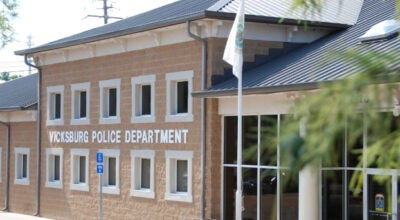Hospital introduces intervention department
Published 12:00 am Thursday, August 31, 2000
Alma Sullivan walks the halls of River Region Health System facilities with a cell phone and a mission.
While she carries a lofty-sounding title director of the department of organizational improvement her objective is simple.
“We’re in the business of taking care of people,” Sullivan said.
The cell phone that never leaves her side is her link directly to patients and their families. The number, 831-2387, is printed on cards that go to every patient when admitted to the hospital for any reason.
They call her with problems, from billing to cold food or not understanding the tests they are scheduled to undergo, and Sullivan is charged with solving the problems immediately.
River Region became the dominant health-care provider here in 1998 when two historically non-profit private hospitals and virtually all clinics and physicians were merged under one corporate umbrella.
At the time, officials of Nashville-based Quorum, Inc., said the competition for the hospitals here wasn’t each other, but medical services in Jackson 40 minutes east on Interstate 20. River Region is building an all-new health complex on U.S. 61 North and, in the interim, responding aggressively to internal surveys showing a poor rapport with the public.
Sullivan said she knows all the River Region department heads and who is accountable for what, and will call the patient back within 30 minutes to an hour to let them know someone is working on a problem.
In turn, the department Sullivan notifies is expected to contact her again within 24 hours to let her know how the problem was resolved.
“It causes us to act,” she said. “When we make a mistake, we apologize, we correct it, and we take actions to prevent that from happening in the future.”
It’s called the Personal Intervention Line, or PI Line for short. The goal is to make sure patients, their families, and even doctors and employees have the best possible experience with River Region. And not inconsequentially, to help pull up customer satisfaction ratings.
When River Region first started last spring to examine how the public felt about the only medical care option available in Vicksburg, “patient satisfaction was really an issue,” Sullivan said. “It didn’t look good at all.”
The company commissioned a private firm to collect survey data on customer satisfaction, and the first results from February through April did not look good.
In inpatient services, for example, only 10 percent of 227 similar-sized hospitals included in the company’s surveys scored worse than River Region. About 13 percent of all 581 hospitals scored lower.
But there are signs that’s starting to change, and administrators give the PI Line part of the credit.
“I’m ecstatic with the improvements,” said River Region CEO Alan Daugherty.
Daugherty said that while the company instituted the satisfaction surveys to get feedback from customers, “sometimes a survey isn’t fast enough.”
That’s where the PI Line comes in, he said. The line helps patients resolve their problems when it matters, while they are still in the hospital.
Sullivan said that if problems are taken care of in the hospital, then by the time customers get surveys mailed to them at home, they have nothing bad left to say.
Sometimes, all people want when they feel overlooked or inconvenienced is an admission that there was a mistake and an apology, she said. When that happens, Sullivan said she often goes to the patient’s room to apologize personally.
Patients who have had to deal with mistakes by personnel are given blue arm bands to wear and given special treatment for the rest of their stay, she said. The bands remind staff not to let problems recur.
“When we handle problems expeditiously and apologize, people are usually satisfied,” Sullivan said. “In the past, it took us longer to do that.”
Change comes slowly. On the latest survey results, from May through July, River Region’s freestanding clinics showed strong improvement in reducing waiting times and more courteous employees.
Inpatient care ratings, on the other hand, are still “not at all what we want,” said Mary Puckett, River Region’s training coordinator and the one who analyzes the survey results for the company.
Still, there is improvement. The company’s inpatient care is now rated better than 17 percent of the hospitals in the survey, and 11 percent of similar-sized hospitals. And you have to start somewhere, officials point out.
Meanwhile, Sullivan said she gets as many as six calls a day on the PI Line.
The cell phone hangs on her hip constantly like a city marshal’s revolver as she walks the halls of River Region’s two hospitals and various clinics. It seems ready to jump into her hand at the first sign of trouble.
“Our resolution time has improved dramatically, and a lot of people call to say service is improving,” she said. “We didn’t get like this in a day. I think it’s working.”





